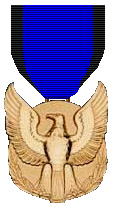
The Legion of Merit (LOM) is a military award of the United States Armed Forces that is given for exceptionally meritorious conduct in the performance of outstanding services and achievements. The decoration is issued to members of the eight uniformed services of the United States as well as to military and political figures of foreign governments.

The Croix de Guerre is a military decoration of France. It was first created in 1915 and consists of a square-cross medal on two crossed swords, hanging from a ribbon with various degree pins. The decoration was first awarded during World War I, again in World War II, and in other conflicts; the croix de guerre des théâtres d'opérations extérieures was established in 1921 for these. The Croix de Guerre was also commonly bestowed on foreign military forces allied to France.
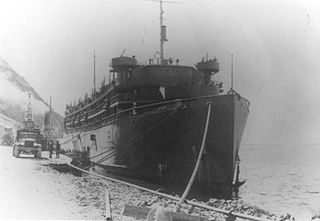
Dorchester was a coastal passenger steamship requisitioned and operated by the War Shipping Administration (WSA) in January 1942 for wartime use as a troop ship allocated to United States Army requirements. The ship was operated for WSA by its agent Atlantic, Gulf & West Indies Steamship Lines (Agwilines). The ship was in convoy SG 19 from New York to Greenland transiting the Labrador Sea when it was torpedoed by a German U-boat on February 3, 1943. The ship sank with loss of 674 of the 904 on board with one of the 230 survivors lost after rescue. The story of four Army chaplains, known as the "Four Chaplains" or the "Immortal Chaplains," who all gave away their life jackets to save others before they died, gained fame and led to many memorials.
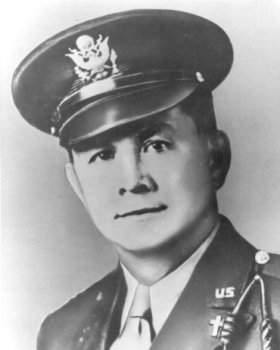
The Four Chaplains, also referred to as the Immortal Chaplains or the Dorchester Chaplains, were four chaplains who died rescuing civilian and military personnel as the American troop ship SS Dorchester sank on February 3, 1943, in what has been referred to as the second-worst sea disaster of World War II.

The Navy Cross is the United States Naval Service's second-highest military decoration awarded for sailors and marines who distinguish themselves for extraordinary heroism in combat with an armed enemy force. The medal is equivalent to the Army's Distinguished Service Cross, the Air and Space Forces' Air Force Cross, and the Coast Guard Cross.

The Distinguished Service Cross (DSC) is the United States Army's second highest military decoration for soldiers who display extraordinary heroism in combat with an armed enemy force. Actions that merit the Distinguished Service Cross must be of such a high degree that they are above those required for all other U.S. combat decorations, but which do not meet the criteria for the Medal of Honor. The Army Distinguished Service Cross is equivalent to the Naval Services' Navy Cross, the Air and Space Forces' Air Force Cross, and the Coast Guard Cross. Prior to the creation of the Air Force Cross in 1960, airmen were awarded the Distinguished Service Cross.
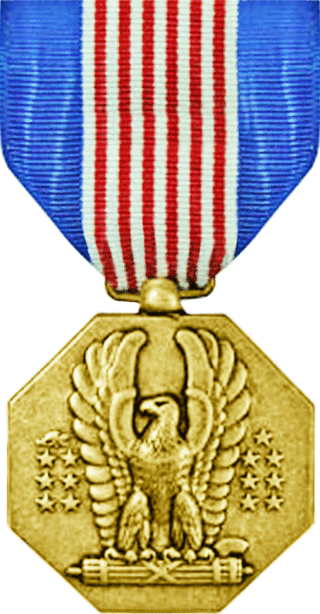
The Soldier's Medal is an individual decoration of the United States Army. It was introduced as Section 11 of the Air Corps Act, passed by the Congress of the United States on July 2, 1926. The Soldier's Medal is equivalent to the Navy and Marine Corps Medal, the Air and Space Forces' Airman's Medal, and the Coast Guard Medal. Prior to the creation of the Airman's Medal in 1960, airmen were awarded the Soldier's Medal.

The Air Force Cross (AFC) is the United States Air Force and United States Space Force's second highest military decoration for airmen and guardians who distinguish themselves with extraordinary heroism in combat with an armed enemy force. The medal is awarded to any person, while serving in any capacity with the Air Force or Space Force, who distinguish themselves by heroism which is extraordinary but not sufficient for the award of a Medal of Honor.

The Archdiocese for the Military Services, U.S.A., officially the Military Ordinariate of United States of America, is a Latin Church jurisdiction of the Catholic Church for men and women serving in the United States Armed Forces and their dependents.
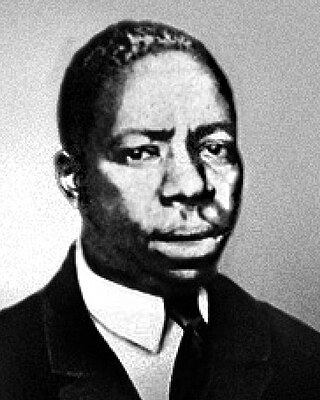
George Watson was a United States Army private who died while rescuing fellow soldiers from drowning at sea during World War II. In 1997, he was awarded the Medal of Honor, the nation's highest military decoration for valor, for his actions on March 8, 1943, near Porlock Harbor, New Guinea.

George Lansing Fox was a Methodist minister and a lieutenant in the United States Army. He was one of the Four Chaplains who gave their lives to save other soldiers during the sinking of the troop transport Dorchester during World War II.

Alexander David Goode was a rabbi and a lieutenant in the United States Army. He was one of the Four Chaplains who gave their lives to save other soldiers during the sinking of the troop transport Dorchester during World War II.
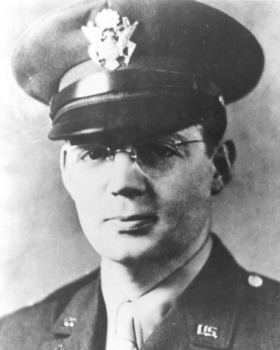
John Patrick Washington was a Catholic priest and a lieutenant in the United States Army. He was one of the Four Chaplains, who gave their lives to save other soldiers during the sinking of the troop transport Dorchester during World War II.
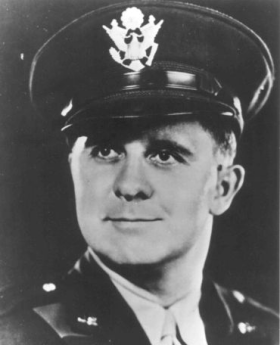
Clark Vandersall Poling was a minister in the Reformed Church in America and a lieutenant in the United States Army. He was one of the Four Chaplains who gave their lives to save other soldiers during the sinking of the troop transport Dorchester during World War II.

The United States Army Chaplain Corps (USACC) consists of ordained clergy of multiple faiths who are commissioned Army officers serving as military chaplains as well as enlisted soldiers who serve as assistants. Their purpose is to offer religious church services, counseling, and moral support to the armed forces, whether in peacetime or at war.

James Megellas was a United States Army lieutenant colonel. During World War II, he was a rifle company platoon leader and is considered to be one of the most decorated combat officers in the history of the 82nd Airborne Division. He received the Distinguished Service Cross for extraordinary heroism and three other decorations for valor.

Floyd K. Lindstrom was a United States Army soldier and a recipient of the United States military's highest decoration—the Medal of Honor—for his actions in World War II.
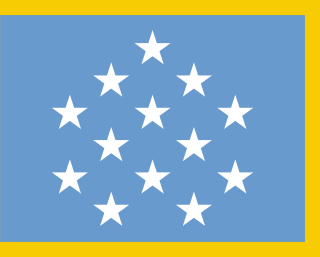
The Medal of Honor (MOH) is the United States Armed Forces' highest military decoration and is awarded to recognize American soldiers, sailors, marines, airmen, guardians, and coast guardsmen who have distinguished themselves by acts of valor. The medal is normally awarded by the president of the United States and is presented "in the name of the United States Congress." It is often colloquially referred to as the Congressional Medal of Honor.

Joseph Verbis Lafleur was a Roman Catholic priest of the Military Ordinariate of the United States who died in the sinking of the SS Shinyo Maru and is in the preliminary stages for sainthood.
